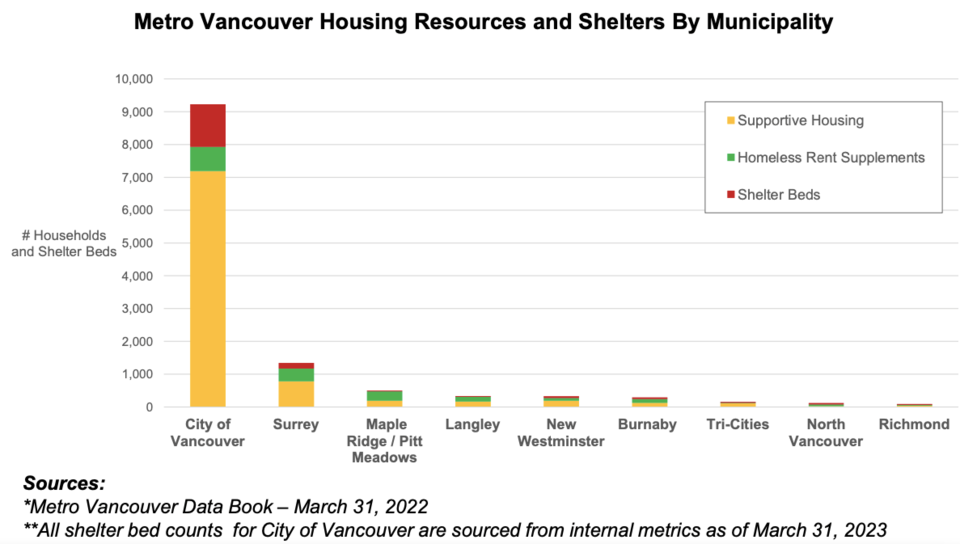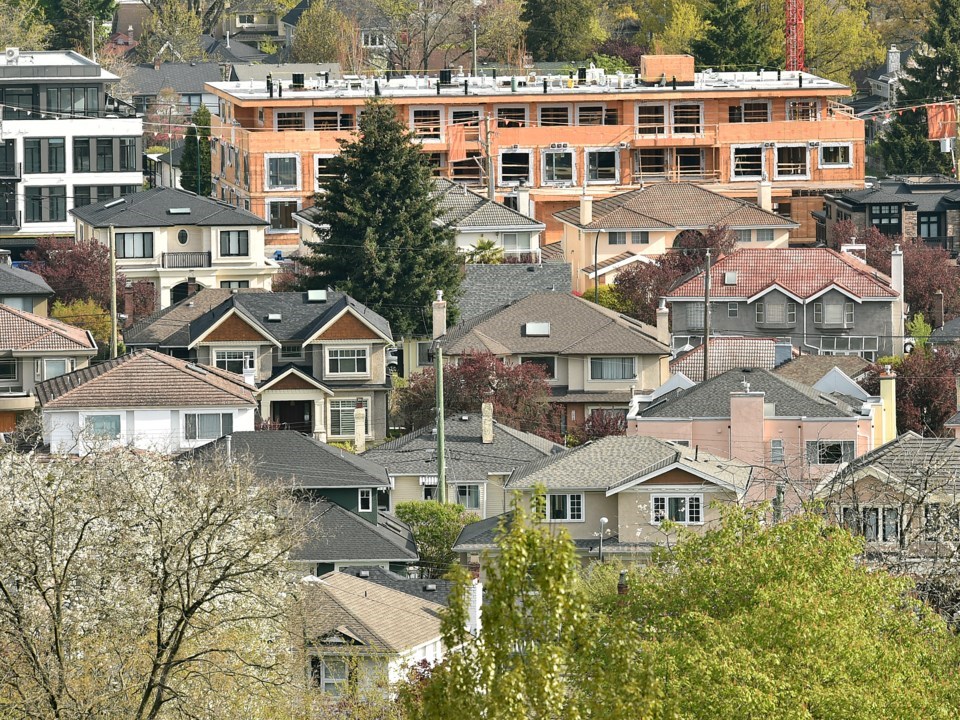Â鶹´«Ã½Ó³»council heard Wednesday that the city’s housing strategy is falling short on the number of homes approved in the past six years for people or households whose annual incomes are $80,000 or less.
The goal of the city’s housing strategy, which was implemented in 2017, was to have half of the 72,000 homes approved over a 10-year period geared to households not earning more than $80,000 per year.
presented by the city’s planning staff showed only 31 per cent of homes approved in the past six years are for that income group — a reality since the plan was implemented, with staff acknowledging the goal may not be practical.
Dan Garrison, the city’s director of housing policy and regulation, said the 50 per cent target was set because it largely relates to building homes for and those living in single-room-occupancy hotels.
“That's proving really challenging to meet,” Garrison said. “So as we look at the new housing targets, and work with the community and ultimately council on setting those new targets, that will absolutely be a consideration — is what can we practically achieve?”
Edna Cho, a senior city housing planner, pointed to money as the main barrier in not hitting the target, with construction costs, inflation and lack of government investment all factors in increasing supply of the much-needed homes.
“While municipalities are able to enable the supply of social housing through the tools we have available, meeting deeper levels of affordability requires additional funding and partnerships with senior governments,” Cho said. “It may not be possible on day one of newly constructed buildings.”
Further insight into failing to meet the target was revealed in Garrison telling council that of 2,500 to 3,000 social housing projects approved, about 1,100 “are what we would call stuck primarily for lack of funding.”

'The lion's share'
A common theme in staff’s presentation was that Â鶹´«Ã½Ó³»carries “the lion’s share” of providing shelters, social housing and supportive housing — which typically comes with wraparound services including health care — for the region.
City manager Paul Mochrie noted the B.C. government’s new Housing Supply Act could compel other municipalities to approve more housing, adding that it was a significant point in further discussions with government and municipalities.
“This continues to be a major challenge for Vancouver,” Mochrie said. “We can't carry the region, and we can never meet the demand of the region in Vancouver. We just don't have enough land and capacity, other services and so on.”
City approved almost 11,000 homes in 2022
Overall, the city’s housing strategy has led to the approval in six years of 43,000 units of all forms of non-market and market housing, with 28,000 built since 2017. The city’s strategy called for about 7,200 homes per year to be approved.
A key goal of the plan was to see two-thirds of the 72,000 homes approved be rental, and that 40 per cent of homes be suitable to accommodate families — so more two and three-bedroom homes.
Last year, the city approved almost 11,000 homes, with about 4,260 of them purpose-built rental. Social and supportive housing approvals reached 1,332 units, and 4,406 condo units were approved.
Laneway home approvals totalled 435, townhouses 359 and coach houses, 33.
Staff told council he provincial and federal governments recently announced budgets and programs totalling more than $8 billion devoted to housing — $4.2 billion from the provincial government’s 2023 budget, and $4.2 billion from a federal “housing accelerator fund.”
“The good news is that senior governments are stepping up and there's better alignment on housing with all levels of government than there has been in decades,” said Cho, noting staff will apply for funds under the federal plan and provide more details to council in June.
Immigration to B.C.
Meanwhile, the demand for housing in Â鶹´«Ã½Ó³»is not expected to subside, with staff pointing out the impact the federal government’s goal to welcome 500,000 new immigrants per year by 2025 will have on the city.
“We know immigration to B.C. is very strong, and the vast majority — approximately 80 per cent — make their way to Metro Vancouver,” Cho said. “In terms of rough estimates for what that means for the City of Vancouver, we're looking at approximately 20,000 to 30,000 new residents each year.”
Cho said there are also strong demographic factors influencing demand such as a high concentration of millennials that will be leaving home and forming households of their own in this and upcoming decades.
Fifty-five per cent of residents are renters and council heard Wednesday that 75 per cent of newcomers also rent, noting the prices of purchasing and renting a home continue to escalate.
A Canada Mortgage and Housing Corporation released in January said new renters in Â鶹´«Ã½Ó³»paid, on average, 24 per cent more than the previous tenant for two-bedroom units rented in 2022.






